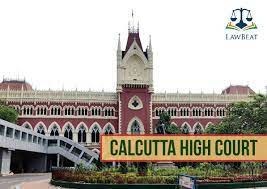Delay in conclusion/resumption of Arbitration proceedings would not wipe out arbitral reference: Calcutta High Court

The claim will not become time-barred if the arbitral proceedings are resumed late, court held.
The Calcutta High Court has recently held that a delay in the conclusion/resumption of arbitral proceedings initiated pursuant to Section 21 of the Arbitration and Conciliation Act, 1996 (the A&C Act) will not render the arbitral reference null and void.
The bench of Justice Shekhar B. Saraf ruled that arbitral proceedings cannot be rendered ineffective because of a delay in the conclusion of the proceedings or because the proceedings were halted for an extended period of time before being resumed.
The court ruled that the issue of whether the claims would be time-barred as a result of the delay in the conduct of the arbitration proceedings cannot be decided by the court exercising its powers under Sections 14 & 15 r/w Section 11 of the A&C Act, but must be raised before and decided by the arbitral tribunal.
The court also held that Section 29A of the Act would not apply to arbitration proceedings that began before the 2015 amendment took effect, as Section 26 of the Amendment Act stipulated that the amendment would apply prospectively, and the Supreme Court affirmed this in its decision in BCCI v. Kochi Cricket Pvt. Ltd.
Court said, “The respondent contends that the arbitration agreement provided for import of statutory modification, as it was mentioned in the arbitration agreement that arbitration would be held as per the provision of the Indian Arbitration Act, 1940 or any statutory modification of the time being in force. Therefore, as per the respondent, this amounts to an agreement between the parties to apply the Amendment Act retrospectively. This argument cannot be sustained.”
Background of the Case
The parties signed a 20-year contract on October 4, 1993, for the installation of a crushing and processing facility and the sale of iron ore. In 2006, however, a number of disputes arose between the parties, prompting the petitioner to invoke the arbitration clause and nominate its arbitrator.
Additionally, the respondent nominated its arbitrator, and the two nominated arbitrators chose the presiding arbitrator. During the course of the proceedings, however, the arbitrator in charge passed away. Accordingly, the arbitrator in charge was replaced.
During the pendency of the Section 16 application, criminal proceedings were initiated against the petitioner in 2016, and arbitral proceedings thereafter made no progress. In 2021, the criminal proceedings against the petitioner concluded with the dismissal of its director. However, in the interim, the arbitrator in charge passed away.
Therefore, the petitioner requested that both nominee arbitrators appoint the presiding arbitrator once more. However, no response was received to its request. Therefore, the petitioner petitioned the court under Sections 14 and 15 of the Act for the termination of the expired arbitrator's mandate and the appointment of a replacement arbitrator.
Observations of the Court
The court noted that the arbitration clause, in this case, was invoked on 15.12.2006, and in accordance with Section 21 of the A&C Act, the arbitration began only on that date.
The court relied on its decision in Subrata Mitra v. Shyamali Basu to hold that the arbitrator must decide whether a delay of seven years in filing a Section 14 & 15 application since the last sitting of arbitration would render the claims statute barred. It held that the issue of whether the claims would be time-barred as a result of the delay in the conduct of the arbitration proceedings cannot be decided by a court exercising its powers under Sections 14 & 15 r/w Section 11 of the A&C Act; rather, it must be raised before the arbitral tribunal and decided by it.
The court also ruled that a delay in the conclusion or resumption of arbitral proceedings initiated pursuant to Section 21 of the Act would not render the arbitral reference null and void. It ruled that arbitral proceedings cannot be rendered ineffective because of a delay in the conclusion of the proceedings or because the proceedings were halted for an extended period of time before being resumed.
Accordingly, court allowed the application and terminated the mandate of the arbitrator, and appointed a substitute arbitrator.
Case Title: East India Minerals Limited v. The Orissa Mineral Development Company Limited
